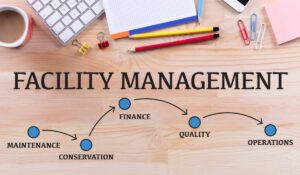
In today’s era of smart buildings and rapid digital transformation, إدارة مرافق في الرياض is evolving faster than ever before. The traditional image of facility management — focused mainly on cleaning, maintenance, and safety inspections — is now giving way to an intelligent, data-driven model. Organisations in Riyadh are realising that modern facilities are not just physical spaces but digital ecosystems where technology enhances comfort, efficiency, and sustainability.
With the rise of smart infrastructure and Saudi Arabia’s Vision 2030 goals, the expectations for إدارة مرافق في الرياض have expanded. Facility managers are now responsible for integrating IoT devices, predictive analytics, automation tools, and AI systems that transform how buildings operate. This shift allows companies to save money, reduce energy consumption, and provide better user experiences — all while aligning with Riyadh’s broader push toward becoming a world-class smart city.
The Rise of Smart Facility Management
Smart facility management represents a fusion of technology and strategy. Using advanced sensors, IoT connectivity, and real-time analytics, modern buildings can monitor environmental factors, energy usage, security systems, and space occupancy automatically. For those managing إدارة مرافق في الرياض, this means fewer unexpected breakdowns, faster decision-making, and seamless operations.
When sensors detect anomalies — such as abnormal energy use or equipment wear — facility managers receive early alerts. They can fix issues before they escalate into major failures. This predictive capability significantly reduces repair costs, improves uptime, and extends the life of assets.
Moreover, when إدارة مرافق في الرياض integrates data with إدارة الأملاك في الرياض, property owners gain deeper insights into how buildings are performing financially and operationally. For instance, they can analyze which assets consume the most power, which areas have the highest maintenance costs, and how tenant behavior affects long-term planning. Together, these insights help justify smart investments and support strategic upgrades.
Energy Efficiency and Predictive Operations
Energy efficiency is one of the biggest priorities for modern facility systems. Through machine learning and intelligent automation, إدارة مرافق في الرياض can adjust HVAC systems, lighting, and ventilation dynamically — responding to occupancy levels and weather conditions in real time. This not only reduces energy waste but also helps achieve sustainability goals and lower carbon footprints.
Predictive operations take things even further. Instead of reacting to failures, sensors predict when a system will need attention. For example, if a cooling unit starts to vibrate abnormally or draw more current than usual, maintenance can be scheduled before a breakdown occurs. This proactive approach reduces downtime, saves money, and keeps operations running smoothly.
For إدارة الأملاك في الرياض, this also means fewer tenant complaints and more stable property value. Buildings that operate efficiently are easier to market and retain tenants longer — a clear competitive advantage in a growing real estate market.
Enhancing Tenant Experience Through Smart Integration
Smart technology does more than improve maintenance; it also elevates tenant experience. A building that maintains optimal temperature, lighting, and air quality automatically creates a comfortable and healthy environment. When integrated with إدارة الأملاك في الرياض, this directly impacts تأجير وتسويق strategies — as smart buildings attract higher-value tenants who appreciate reliability and comfort.
Marketing teams can highlight these innovations during تأجير وتسويق campaigns, positioning properties as “intelligent, sustainable, and tenant-friendly.” Smart access systems, automated parking, and mobile apps that let tenants control lighting or submit service requests all enhance satisfaction and loyalty.
Furthermore, توثيق العقود becomes easier and more transparent. Facility performance data — such as response times, energy usage, or air quality — can be automatically recorded and attached to tenancy agreements. This means that both landlords and tenants have verifiable evidence of service levels, reducing disputes and improving trust.
Operational Scale and Strategic Coordination
For organizations managing large property portfolios, scalability is key. A single platform can now control and monitor multiple sites across Riyadh, giving facility teams real-time visibility into all buildings. This centralization allows for unified planning, efficient resource allocation, and consistent performance standards.
Through the combination of إدارة مرافق في الرياض and إدارة الأملاك في الرياض, decision-makers can identify underused spaces, balance energy loads, and streamline vendor contracts. For instance, if several buildings require similar maintenance services, managers can negotiate better deals and schedule work collectively. This reduces redundancy and ensures consistency across the portfolio.
Cloud-based dashboards also allow remote monitoring and instant data sharing, which is vital in Riyadh’s growing corporate and residential real estate markets. As cities become more connected, facility managers must think like strategists — not just caretakers — using data to support business objectives.
Challenges in Adopting Smart Facility Systems
Despite the many benefits, transitioning to smart facility management is not without challenges. Initial investment costs, staff training, and cybersecurity risks are major considerations. Many organizations hesitate due to the perceived complexity of IoT integration or fear of data breaches.
However, these obstacles can be overcome through careful planning. The best approach for إدارة مرافق في الرياض is to start small — perhaps with a single floor, building zone, or system — and scale up after proving success. Training programs should be established to help staff interpret data dashboards and use predictive tools confidently.
Cybersecurity must also be a top priority. Since smart systems often connect to tenants’ networks, protecting data privacy is crucial. Encrypting communications, using secure cloud platforms, and assigning strict user permissions can help safeguard sensitive information.
The Future of Integrated Smart Management
As Riyadh accelerates toward smart city development, إدارة مرافق في الرياض and إدارة الأملاك في الرياض are becoming inseparable. Buildings of the future will be self-optimizing — capable of adjusting lighting, temperature, and maintenance schedules automatically based on sensor feedback and predictive models.
In this future, facility management becomes a strategic differentiator. Real estate companies will compete not only on location and design but also on technological intelligence and sustainability. تأجير وتسويق strategies will increasingly emphasize operational efficiency, energy savings, and tenant well-being. Meanwhile, توثيق العقود will evolve into digital agreements that include measurable service-level guarantees supported by live facility data.
This integration will empower property owners, tenants, and managers to operate in harmony. Smart management platforms will deliver transparency, sustainability, and profitability — the three pillars of modern real estate in Riyadh.
Conclusion
The evolution of إدارة مرافق في الرياض marks a pivotal moment for the real estate industry in Saudi Arabia. From predictive maintenance to tenant-centric experiences and integrated digital platforms, facility management is no longer a background function — it is the backbone of modern property operations.
When merged with إدارة الأملاك في الرياض, it creates a powerful ecosystem that enhances efficiency, comfort, and long-term asset value. As smart building technologies become mainstream, organizations that embrace innovation today will lead tomorrow’s market.
Riyadh’s journey toward a smarter, more sustainable urban landscape depends heavily on how facility and property managers collaborate. With smart technologies, إدارة مرافق في الرياض evolves from routine maintenance to a strategic, data-driven discipline — one that defines the future of modern living and business excellence in the capital.

